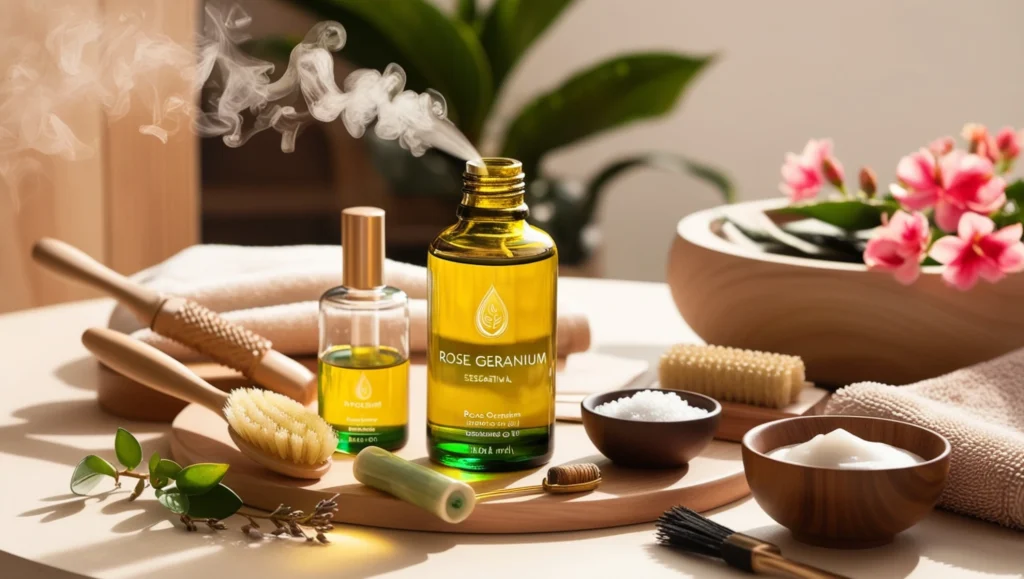Rose Geranium Essential Oil
Rose Geranium Essential Oil, derived from the leaves and stems of the Pelargonium graveolens plant, is renowned for its sweet, floral aroma and numerous therapeutic benefits. This versatile oil is a staple in aromatherapy and natural skincare, offering a range of applications from emotional well-being to physical health. Its delightful scent is often compared to that of roses, making it a popular choice for perfumes and beauty products.
Medicinal Use of Rose Geranium Essential Oil
Rose Geranium Essential Oil boasts a variety of medicinal properties:
- Anti-inflammatory:
Helps reduce inflammation and soothe irritated skin. - Antimicrobial: Effective against bacteria and fungi, making it useful for treating minor wounds and infections.
- Antidepressant:
Its uplifting scent can help alleviate symptoms of depression and anxiety. - Astringent:
Tightens and tones the skin, reducing the appearance of wrinkles and fine lines. - Hemostatic:
Promotes the clotting of blood, aiding in the healing of cuts and scrapes.
Preparation and Dilution
To use Rose Geranium Essential Oil safely and effectively, proper preparation and dilution are essential:
- Dilution:
Always dilute the essential oil with a carrier oil, such as jojoba or almond oil. A common ratio is 2-3 drops of Rose Geranium Essential Oil per teaspoon of carrier oil. - Topical Application:
Apply the diluted mixture to the skin for issues like acne, eczema, or minor wounds. - Aromatherapy:
Add a few drops to a diffuser to enjoy its calming and uplifting effects. - Bath Soak:
Mix a few drops with Epsom salts and add to your bath for a relaxing experience.
Pros and Cons of Rose Geranium Essential Oil
Pros
– Versatile:
Suitable for a wide range of applications, from skincare to emotional well-being.
– Natural:
A chemical-free alternative to synthetic products.
– Pleasant Aroma:
Its sweet, floral scent is both calming and uplifting.
– Therapeutic Benefits:
Offers anti-inflammatory, antimicrobial, and astringent properties.
Cons
– Skin Sensitivity:
May cause irritation for those with sensitive skin; always perform a patch test.
– Photosensitivity:
Can increase sensitivity to sunlight; avoid direct sun exposure after application.
– Cost:
High-quality essential oils can be expensive.
– Allergic Reactions:
Rare, but possible; discontinue use if any adverse reactions occur.
